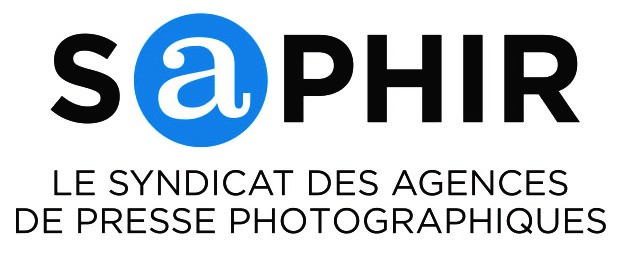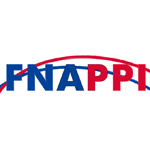 Creativity Works! address Bulgarian Presidency regarding new amendments to the copyright proposal in order to improve creators’ rights.
Creativity Works! address Bulgarian Presidency regarding new amendments to the copyright proposal in order to improve creators’ rights.
The latest on the Copyright Directive. The text is out and the council meeting is on Friday 25th of May. Following that it needs to get into Trilogue as we’re running out of time. There’s a small possibility of tweeks at Trilogue, but overall the text is ok.
Concern for the AV sector was on reference to licensing, they want to maintain the rights not to license, it was felt that the music industry’s text on licensing went too far.
Germany are still pushing for a carve out for small businesses over worries about the inclusion of ‘start-ups’ under online content sharing service providers. Any such platform that benefits financially from the use of images uploaded by ‘non-copyright holder users’ and collects data based on image searches, whether as a start-up or established should be liable under the same terms, there shouldn’t be special dispensation.
Read the full letter addressed to the Bulgarian Presidency below:
22 May 2018
Re: Latest Bulgarian Presidency proposal on copyright leaves authors and rights holders worse-off
Dear Minister Banov,
Dear Ambassador Tzantchev
Dear Ambassador Koleva,
Dear Ambassadors,
We are Creativity Works!, a leading European coalition of the cultural and creative sectors. We represent writers, screenwriters, video game developers, broadcasters, book publishers and retailers, cinema operators, sports organisers, picture agencies, music and film/TV producers, publishers and distributors.
We recognise that discussions on the proposed Copyright Directive are trying to arrive at a good enough position – especially as political pressure mounts. This approach is short-sighted, and endangers Europe’s creators and culture who depend on copyright. We cannot move backwards on this crucial piece of legislation. Creativity and culture mould our communities – whether by shaping our memories, inspiring our hobbies or keeping our economies moving. Copyright makes it possible for creativity, culture and innovation to exist.
None of the concerns we expressed in our letter dated 23 April have been addressed in the latest compromise proposal that the Bulgarian Presidency circulated on 17 May for discussion at the COREPER I meeting of 25 May. On the contrary, the latest text creates yet additional limitations on exclusive rights.
We respectfully call on you to reconsider the following concerns which are explained in more detail in the Annex below:
- Article 13.4 should be deleted
- Article 6(4)(4) of the 2001/29 Copyright Directive should continue to apply in the on-demand space, therefore a reference to Article 6(4)(4) should be included in Article 6 of the Proposed Directive
- On exceptions for Text Data Mining, the optional TDM exception should be deleted
- Delete the reference to ‘never in commerce work’ in relation to out-of-commerce works (Recital 25)
Ahead of that important political meeting on the proposed Copyright Directive, we call on you to reject any political compromise that severely backpedals on existing rights of those who create and invest in content, in favour of some already powerful platforms. We urge Member States to continue the substantive discussions at technical level, and reject any hasty and unbalanced agreement to the detriment of Europe’s creators and cultural sectors.
We recall that copyright plays a central role for Europe’s creators, cultural sectors and the economic business partners behind every creator. This proposal is a once in a generation opportunity to strike the
right balance for our cultural and creative ecosystem and certain platforms giving access to creative works. The proposal as it currently stands however, is largely unbalanced and would undermine the EU acquis. Furthermore, it appears that it would primarily benefit Internet giants to the detriment of creative and cultural communities. This hardly strikes the right balance.
We are asking for fairness. Copyright needs to continue to serve as our fuel. This will allow us to keep producing, creating and publishing so that our communities and audiences can keep accessing their favourite form of culture. Ingenuity and financial risk-taking should be rewarded and encouraged, not punished. Europe’s creators and their business partners deserve thoughtful consideration.
We thank you for your consideration and stand ready to engage with you in view of reaching a balanced solution.
Sincerely yours,
Creativity Works!
Creativity Works!.membership includes:
- Association of Commercial Televisions in Europe (ACT)
- Bundesliga
- Center of the Picture Industry (CEPIC)
- EUROCINEMA
- European Coordination of Independent Producers (CEPI)
- European and International Booksellers’ Federation (EIBF)
- European Writers’ Council (EWC)
- Federation of European Publishers (FEP)
- Federation of Screenwriters in Europe (FSE)
- Independent Music Companies Association (IMPALA)
- Interactive Software Federation of Europe (ISFE)
- International Confederation of Music Publishers (ICMP)
- International Federation of Film Distributors’ Associations (FIAD)
- International Federation of Film Producers’ Associations (FIAPF)
- International Union of Cinemas (UNIC)
- International Video Federation (IVF)
- La Liga
- MEDIAPRO
- Motion Picture Association (MPA)
- the Premier League
- Verband Privater Medien (VAUNET)
Our main concerns with regards to the current Copyright Directive proposal from the Bulgarian Presidency (as of 17 May, reference: 8627/18):
We would like to bring to your attention our specific concerns about the Bulgarian Presidency’s latest proposal on the Copyright Directive, on (i) the so-called “value gap” provision (on Article 2, Article 13 and corresponding recitals), (ii) exceptions (Articles 3-5) and (iii) out-of-commerce works (Articles 7-9).
Value gap
- The current wording proposed by the Bulgarian Presidency on the so-called “value gap” provision does not fulfil its intended purpose of allowing rights holders to better determine the conditions for – or to prevent – the use of their content. On the contrary, the Article 13 would leave right holders worse off than under current law. It would undermine current enforcement efforts and further strengthen the role of some already powerful content sharing platforms. It would limit existing rights and create a special copyright liability privilege for these platforms. This runs counter to the very spirit and objective of Article 13. Worse it runs counter to international law and EU obligations
- It would limit the scope of the right of communication to the public by incompletely applying Court of Justice of the European Union (CJEU) case law and referencing in Article 13 only certain criteria
- developed by the Court. This approach would roll-back the CJEU’s case law, which has repeatedly confirmed that a broad interpretation of the right of communication to the public (CTTP) is necessary to achieve the main objective of the Copyright Directive, which is to establish a high level of protection for authors and rights holders.
- CW! recalls that the exclusive right of communication to the public, including the making available right, as enshrined in EU law (and further clarified by the Court), has emerged as the bedrock for the creation, financing, licencing and protection of content, as well as its ultimate delivery to consumers in the online environment. Article 13.4 would contravene international law.
- “Best efforts” is a term to be yet defined and in our view undermines responsibility. Today, these platforms are already required to take measures with respect to specifically identified and notified works. The current proposal would leave rights holders worse off than under current law! There will be negative consequences for Europe’s cultural and creative diversity. Furthermore, it puts into question an entire eco-system that employs 11 million people. Article 13.4 should therefore be deleted.
- In addition, in the latest compromise proposal, it is stated that SME’s should get preferential treatment in the assessment of copyright liability. Such an approach is unacceptable as the size of a company should be irrelevant for the assessment of copyright infringement/liability. In particular, in the case of audiovisual live content, the harm is identical no matter the size of the service where the content has been illegally uploaded and publicly shared.
Exceptions
- It must be clarified that exceptions cannot be combined with each other. It should be made clear that, consistent with the three-step test and international copyright norms, each exception and limitation to an exclusive right under copyright and related rights is to be interpreted restrictively as to its own beneficiaries, scope and purpose. While each exception in the proposed Directive might be justified on its own merit and with a concise scope, beneficiaries of all these exceptions must have lawful access to the copyright protected content. This means acquired access with the consent of the right holders. Moreover, any legislative proposal that undermines the ability of right holders to control and deploy TPMs to manage the access to and use of their content in the on-demand space would severely limit their ability to protect their investment. It would also likely deprive consumers of new services with innovative interactive functionalities that have been enabled by TPMs. Therefore, it is necessary that Article 6(4)(4) of the 2001/29 Copyright Directive continues to apply in the on-demand space. A specific reference to Article 6(4)(4) should therefore be included in Article 6 of the Proposed Directive.
- Specifically, on exceptions for Text Data Mining, the optional TDM exception is unacceptable: it has no specified beneficiaries, no obligation to store securely and to delete copies and no identified purpose. We call for a deletion of this proposed new exception which (appears to) benefit primarily internet giants to the detriment of the creative sector.
Out-of-commerce works
- In our view, the Bulgarian Presidency should consider all existing systems and reflect specificities of each creative content sector. We note that the definition of a ‘never in commerce work’ first proposed by the Estonian Presidency in Recital 25, and now unfortunately endorsed by the Bulgarian Presidency, also includes unpublished works. This goes against the respect of moral right of an author, and against a basic principle of copyright legislation.
















